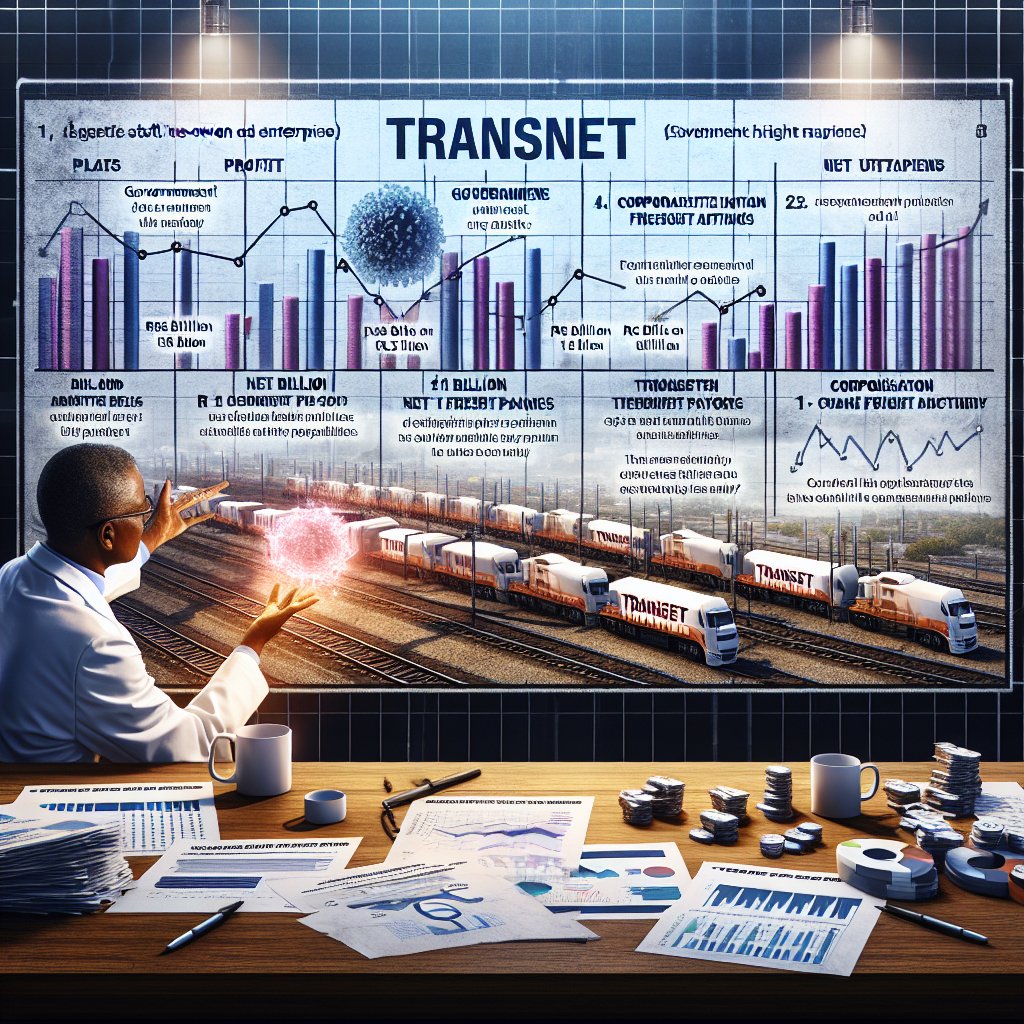Image created by AI
Transnet Battles R120 Billion Debt, Seeks Recovery Amidst Economic Strain
Transnet, South Africa's second-largest state-owned enterprise (SOE), is grappling with a R120 billion debt crisis that has put the nation's economy under severe strain. CEO Michelle Phillips shared insights into the SOE’s troubling finances during PSG’s Think Big webinar series, highlighting the stark decrease in profits from R5 billion in 2019 to a net loss of R5.7 billion in 2023.
With the utility spending a staggering R1 billion a month to service interest on its debt, the scale of the problem cannot be overstated. GAIN Group's research indicates that Transnet's operational failures contribute to a R1 billion daily loss in economic output, an alarming 4.9% of South Africa's GDP annually.
Responding to the crisis, the government has stepped in with a R47 billion guarantee structure outlined in the 2024 Budget, a move crucial for the utility's survival but not without risks. Phillips, appointed last year to steer Transnet's turnaround, confirmed that this guarantee is meant to enable further borrowing, not to provide a direct fiscal bailout.
Transnet's distress, largely a legacy from the state capture years, presents a daunting challenge to Phillips and her team. The interest burden has been likened to "paying your bond with your credit card," an unsustainable financial strategy by any standard.
In terms of operations, Phillips points to the Freight Logistics roadmap, which includes the clear expectations set by the cabinet for Transnet. One key reform is the corporatisation of the Transnet National Ports Authority (TNPA), scheduled for April 2025. Additionally, the separation of Transnet Freight Rail (TFR) into distinct infrastructure management and operations divisions is underway.
Phillips attributes much of the current turmoil to historic neglect of infrastructure maintenance, underinvestment, and a failure to focus on revenue generation. However, recovery efforts include significant financial restructuring, renegotiations on existing debt to secure more favorable terms, and opening up the rail network to third-party operators to increase revenue streams.
Despite the bleak outlook, there is a shared resolve among the leadership team, the board, organized labor, Transnet customers, and private sector partners in Transnet's "too big to fail" scenario. Together they are executing an 18-month recovery plan initiated in October 2023. Six months in, Phillips reports some stability and positive signs of operational and financial recovery.
As Transnet endeavors to climb out of its so-called "debt trap," its successes or failures will remain a critical factor for the broader South African economy. With significant national resources and effort channelled into the utility's recovery, the hope is that Transnet can emerge leaner, more efficient, and self-sustaining, beneficial to all stakeholders, and above all, to the nation's economic vitality.










